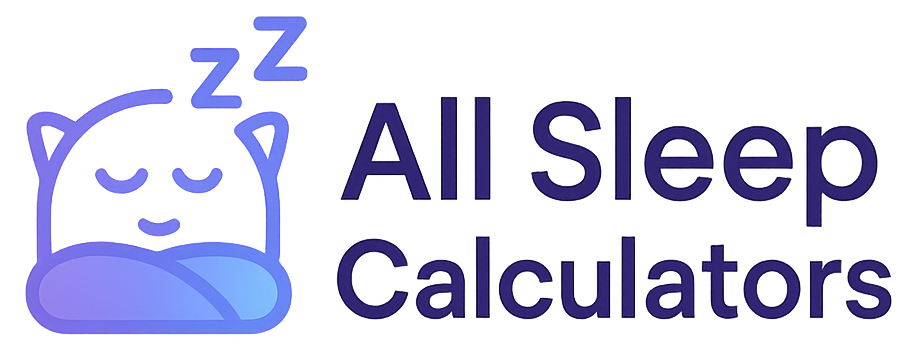What Is Sleep Fragmentation?
Sleep fragmentation refers to the interruption of normal sleep continuity by frequent, brief arousals or awakenings. Unlike occasional waking during the night, fragmented sleep involves repeated disruptions throughout the sleep period, often without the person fully awakening or remembering these interruptions.
Did you know? The average person naturally experiences 10-15 brief arousals per hour during normal sleep. These microarousals typically last only a few seconds and don't disrupt sleep quality. Sleep fragmentation occurs when these arousals become more frequent or prolonged.
Causes of Sleep Fragmentation
Sleep fragmentation can be caused by numerous factors:
-
Sleep disorders:
- Sleep apnea (brief pauses in breathing during sleep)
- Periodic limb movement disorder
- Restless legs syndrome
- Insomnia
-
Environmental factors:
- Noise disturbances
- Light exposure
- Temperature variations
- Uncomfortable sleep surface
-
Lifestyle factors:
- Caffeine or alcohol consumption
- Late-night eating
- Irregular sleep schedules
- Stress and anxiety
-
Medical conditions:
- Pain conditions
- Gastrointestinal disorders
- Respiratory conditions
- Neurological disorders
- Medications: Many medications can disrupt normal sleep patterns
How Sleep Fragmentation Affects Sleep Quality
Sleep fragmentation disrupts the normal progression of sleep cycles and sleep architecture:
- Reduced time in deep sleep: Frequent arousals prevent reaching or maintaining restorative deep sleep (N3 stage)
- Disrupted REM sleep: Less time in REM can affect cognitive function and emotional processing
- Increased light sleep: More time spent in lighter sleep stages (N1, N2) that are less restorative
- Altered sleep transitions: Abnormal progression through sleep stages
Effects of Sleep Fragmentation on Health and Well-being
Chronic sleep fragmentation can lead to various health consequences:
-
Cognitive effects:
- Impaired attention and concentration
- Reduced problem-solving abilities
- Memory difficulties
- Slowed reaction times
-
Emotional effects:
- Increased irritability
- Mood disturbances
- Higher stress levels
- Risk of anxiety and depression
-
Physical health effects:
- Increased inflammatory markers
- Impaired glucose tolerance
- Elevated blood pressure
- Weakened immune function
- Higher risk of cardiovascular issues
-
Daytime functioning:
- Excessive daytime sleepiness
- Reduced productivity
- Increased accident risk
Diagnosing Sleep Fragmentation
Sleep fragmentation can be assessed through several methods:
- Polysomnography (sleep study): Measures brain waves, muscle tone, eye movements, breathing, and more to identify disruptions
- Actigraphy: Wrist-worn devices that track movement to identify potential sleep disruptions
- Sleep diaries: Self-reported records of sleep patterns
- Clinical assessment: Evaluation of symptoms, medical history, and sleep habits
Strategies to Reduce Sleep Fragmentation
Improving sleep continuity requires addressing underlying causes and enhancing sleep habits:
-
Addressing sleep disorders:
- Treating sleep apnea with CPAP or other therapies
- Managing restless legs syndrome
- Treating insomnia with cognitive behavioral therapy
-
Optimizing sleep environment:
- Minimizing noise with earplugs or white noise
- Darkening the room with blackout curtains
- Maintaining comfortable temperature (65-68°F/18-20°C)
- Investing in a supportive mattress and pillows
-
Improving sleep hygiene:
- Establishing a consistent sleep schedule using our bedtime calculator
- Creating a relaxing bedtime routine
- Avoiding caffeine, alcohol, and large meals before bed
- Limiting screen time and blue light exposure in the evening
-
Stress management:
- Practicing relaxation techniques like deep breathing
- Using meditation or mindfulness
- Addressing anxiety and worry
When to Seek Professional Help
Consult a healthcare provider or sleep specialist if:
- You consistently wake up feeling unrefreshed despite adequate sleep duration
- Your partner reports that you snore loudly, gasp, or stop breathing during sleep
- You experience excessive daytime sleepiness despite sleeping 7-9 hours
- You have persistent difficulty staying asleep throughout the night
- Sleep problems are affecting your daily functioning, mood, or health
Want to improve your sleep continuity?
Use our calculators to optimize your sleep schedule and reduce fragmentation:
Explore More Sleep Topics
Sleep Paralysis
Learn about the phenomenon of being conscious but unable to move when falling asleep or waking up.
REM Sleep
Learn about REM sleep, its connection to dreaming, and its role in memory and learning.
Melatonin
Learn about this important sleep hormone and its role in your sleep-wake cycle.
Sleep-Wake Homeostasis
Discover how your body naturally regulates sleep pressure and wakefulness.
